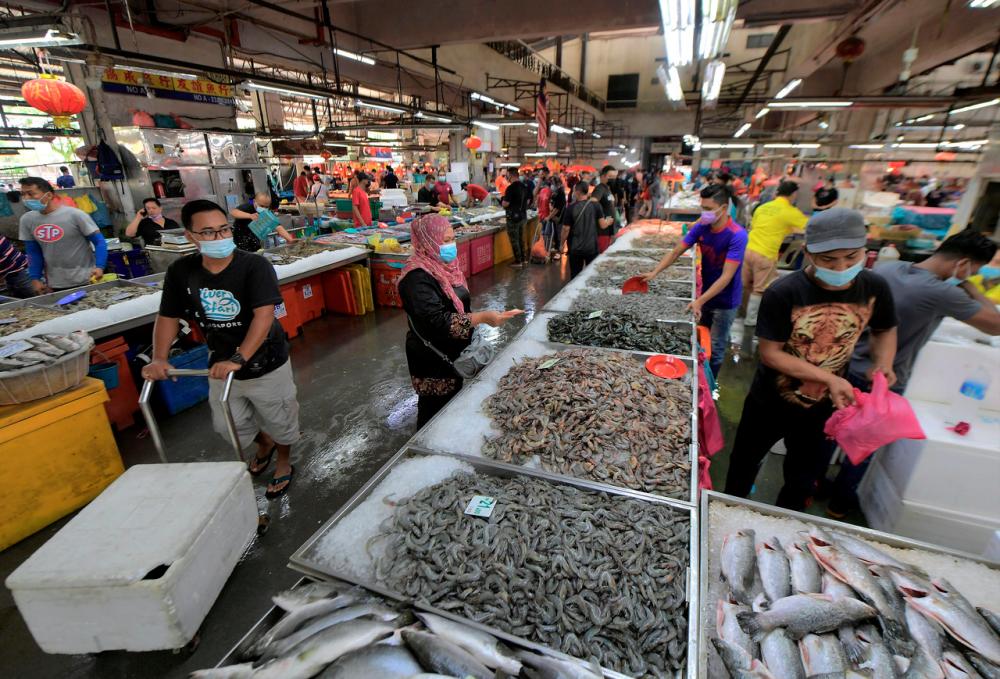PETALING JAYA: The wet spell and accompanying floods, together with the Covid-19 pandemic, have been disastrous for business at wet markets.
Supplies have dropped, making it difficult for consumers to get high quality produce. At the same time, the number of customers who frequent wet markets has plunged.
At the source, from vegetable farms to fishing grounds, the situation has become quite desperate.
Cameron Highlands Agriculture Association chairman Ng Tien Khuan said flood waters have damaged most of the vegetables in lowland farms while in the highlands, the more intense precipitation and lack of sunlight have stunted the growth of greens.
“With less sunlight, vegetables tend to take longer to mature, so we have to adjust our harvesting time. Even so, most of the time we end up picking them before they are fully mature,” he explained to theSun.
As a result, the quantity harvested has also dropped, he added.
Ng said the Covid-19 pandemic has also made it more difficult to import vegetables to meet local demand.
“Covid-19 and heavy rainfall have proven to be destructive for the supply of vegetables to consumers,” he said.
The situation has been equally undermined for the fishing industry. According to the Malaysian Inshore Fishermen Association for
Education and Welfare (Jaring), fishermen have been having a “long holiday” because of monsoon rains and the Covid-19 pandemic.
“This is especially so for small-scale fishermen in the east coast states, Jaring secretary Azrilnizam Omar told theSun yesterday.
“These fishermen have to stop working during the rainy season and look for jobs inland. Only the big fishing boats will go out to sea at this time, and even then, only for short spells,” he said.
This has led to a sharp increase in the prices of fish.
Azrilnizam said the quantum varies by location but on the whole, prices have risen by RM2 to RM5 per kilogramme for all types of seafood.
“If the situation does not improve, we can expect prices to double soon,” he said.
He said the Covid-19 pandemic has made things worse for the fishermen.
“It is difficult now to put together a crew to go out to fish,” he added.
He expects prices to continue to rise as the Chinese New Year festival approaches, and will stabilise only two or three days after the celebrations are over.
The MCO has also led to a drop in patronage at wet markets. At the wet market in Taman Tun Dr Ismail in Kuala Lumpur, there are only about 300 customers per day, down from between 2,000 and 3,000 previously.
TTDI Market Traders Association president Jenny Loo said there have been about 200 digital orders but those have not been enough to cover the shortfall.
“Prices have doubled for most vegetables, and more than doubled for tomatoes and mustard greens,” she told theSun.
“Some vegetables that used to cost RM3 a kilogramme are now selling at RM9.”
However, Loo believes the price increases have not led to a drop in demand for vegetables because most people still see it as a daily necessity.
“Furthermore, this market is in a more affluent area, so people are less likely to notice or care about price increases,” she added.














